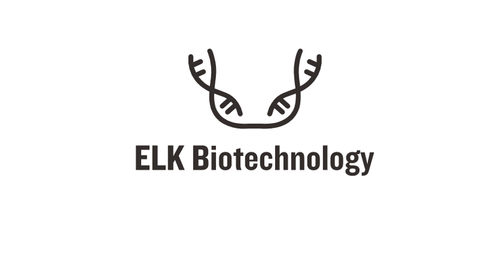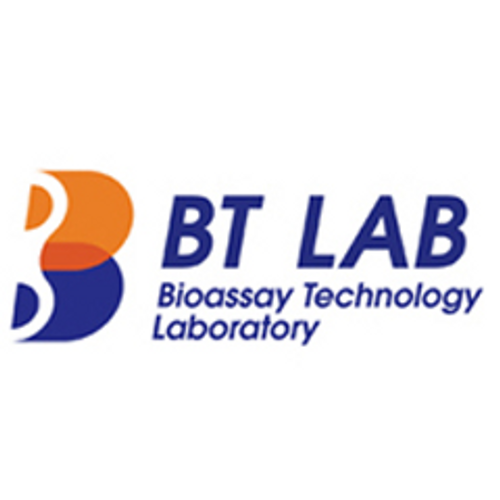Product Description
Human Stress-induced-phosphoprotein 1 (STIP1) ELISA Kit | KTE60387 | Abbkine
Application: This Human Stress-induced-phosphoprotein 1 (STIP1) ELISA Kit employs a two-site sandwich ELISA to quantitate STIP1 in samples. An antibody specific for STIP1 has been pre-coated onto a microplate. Standards and samples are pipetted into the wells and anySTIP1 present is bound by the immobilized antibody. After removing any unbound substances, a biotin-conjugated antibody specific for STIP1 is added to the wells. After washing, Streptavidin conjugated Horseradish Peroxidase (HRP) is added to the wells. Following a wash to remove any unbound avidin-enzyme reagent, a substrate solution is added to the wells and color develops in proportion to the amount of STIP1 bound in the initial step. The color development is stopped and the intensity of the color is measured.
Detection Method: Colorimetric
Conjugate: N/A
Sample Type: Cell culture supernatants#Serum#Plasma#Other biological fluids
Assay Type: Multiple steps standard sandwich ELISA assay with a working time of 3-5 hours. It depends on the experience of the operation person.
Kit Component: • Human Stress-induced-phosphoprotein 1 microplate
• Human Stress-induced-phosphoprotein 1 standard
• Human Stress-induced-phosphoprotein 1 detect antibody
• Streptavidin-HRP
• Standard diluent
• Assay buffer
• HRP substrate
• Stop solution
• Wash buffer
• Plate covers
Features & Benefits: Human Stress-induced-phosphoprotein 1 (STIP1) ELISA Kit has high sensitivity and excellent specificity for detection of Human STIP1. No significant cross-reactivity or interference between Human STIP1 and analogues was observed.
Calibration Range: Please inquire
Limit Of Detection: Please inquire
Usage Note: • Do not mix components from different kit lots or use reagents beyond the kit expiration date.
• Allow all reagents to warm to room temperature for at least 30 minutes before opening.
• Pre-rinse the pipet tip with reagent, use fresh pipet tips for each sample, standard and reagent to avoid contamination.
• Unused wells must be kept desiccated at 4 °C in the sealed bag provided.
• Mix Thoroughly is very important for the result. It is recommended using low frequency oscillator or slight hand shaking every 10 minutes.
• It is recommended that all samples and standards be assayed in duplicate or triplicate.
Storage Instruction: The unopened kit should be stored at 2 - 8°C. After opening, please store refer to protocols.
Shipping: Gel pack with blue ice.
Precaution The product listed herein is for research use only and is not intended for use in human or clinical diagnosis. Suggested applications of our products are not recommendations to use our products in violation of any patent or as a license. We cannot be responsible for patent infringements or other violations that may occur with the use of this product.
Background: Hop is the Hsp70-Hsp90 organizing protein. It functions as a co-chaperone which reversibly links together the protein chaperones Hsp70 and Hsp90.The gene for human Hop is located on chromosome 11q13.1 and consists of 14 exons. HOP (the abbreviation stands for Hsp70/Hsp90 Organizing Protein) belongs to the large group of co-chaperones, which regulate and assist the major chaperones (mainly heat shock proteins) . It is one of the best studied co-chaperones of the Hsp70/Hsp90-complex. It was first discovered in yeast and homologues were identified in human, mouse, rat, insects, plants, parasites, and virus. The family of these proteins is referred to as STI1 (stress inducible protein) and can be divided into yeast, plant, and animal STI1 (Hop) .
Alternative Names: STIP1; HOP; IEF-SSP-3521; P60; STI1; STI1L; Hsp70/Hsp90-organizing protein; stress-induced-phosphoprotein 1 (Hsp70/Hsp90-organizing protein)
Search name: STIP1; HOP; IEF-SSP-3521; P60; STI1; STI1L; Hsp70/Hsp90-organizing protein; stress-induced-phosphoprotein 1 (Hsp70/Hsp90-organizing protein)
Tag: STIP1
 Euro
Euro
 USD
USD
 British Pound
British Pound
 NULL
NULL












